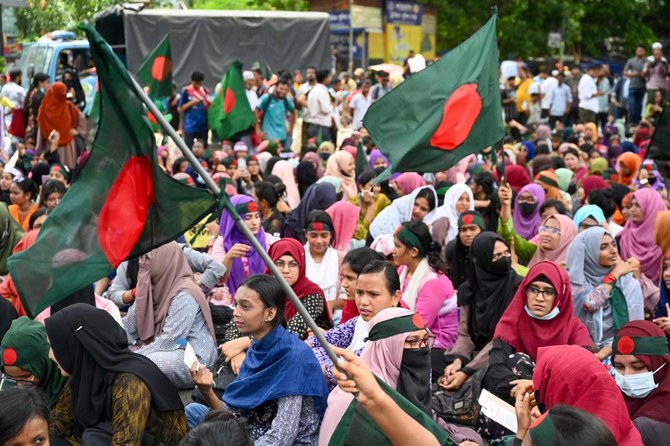But a court ordered the authorities to reinstate the quotas in early June, triggering the latest round of protests.
Officials say three people were killed in the southern port city of Chittagong and two in Dhaka, while one student was killed in the northern city of Rangpur by a stray bullet.
Media reports say at least three of those killed were students, though there is no official confirmation yet.
The government blames opposition groups for the violence.
“The student fronts of the opposition Jamaat-e-Islami and the Bangladesh Nationalist Party [BNP] have infiltrated this anti-quota movement. They are the ones who initiated the violence,” Law Minister Anisul Huq told the BBC.
Bangladesh’s top court suspended the current system last week, but protests are expected to continue until it is permanently removed.
“The case has been listed for hearing on 7 August. Students have been given an opportunity to present their argument in the court,” Mr Huq said.
In a late-night operation on Tuesday, police raided the headquarters of the BNP, the main opposition party, in Dhaka, following the violent clashes.
Senior BNP leader Ruhul Kabir Rizvi said the raid was nothing but a drama and it was a message for the students to return home.
The protests have been going on for days with the students blocking roads and highways in Dhaka and other major cities, bringing traffic to a halt.
Student leaders said they were angered by recent comments of Ms Hasina who, they say, described those opposed to the job quotas as razakar – a term used for those who allegedly collaborated with the Pakistani army during the 1971 war.
Several student leaders said Ms Hasina had insulted them by comparing them to razakar. The comparison, they said, also encouraged BCL members to attack them.
“They want to suppress our voices through creating a reign of terror in the country. If I don’t protest today, they will beat me another day. That’s why I am on the streets to protest,” Rupaiya Sherstha, a female student at Dhaka University, told the BBC.
But government ministers say Ms Hasina’s comments were misinterpreted, and she did not call the students razakar.
Mohammad Ali Arafat, state minister for information and broadcasting, denied allegations that the student wing of the Awami League triggered the violence.
He said the trouble began after anti-quota students intimidated residents of a hall in Dhaka.
“If there’s chaos on the university campuses, there’s no benefit for the government. We want peace to be maintained,” Mr Arafat told the BBC.
UN Secretary General António Guterres called on the government to “protect the demonstrators against any form of threat or violence”, according to his spokesman Stephane Dujarric.
The students have vowed to continue their protests until their demands are met.
The government has strengthened security by deploying the paramilitary, Border Guards Bangladesh, in five main cities, including Dhaka and Chittagong.

